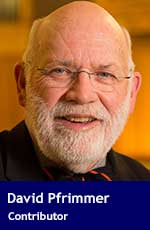 Ontario’s June election was one for change and Doug Ford’s Progressive Conservatives emerged the victors. Unfortunately, many voters believe their vote didn’t count. Thanks to our first-past-the-post (FPTP) electoral system, they’re right.
Ontario’s June election was one for change and Doug Ford’s Progressive Conservatives emerged the victors. Unfortunately, many voters believe their vote didn’t count. Thanks to our first-past-the-post (FPTP) electoral system, they’re right.
Once again, there’s an overwhelming majority provincial government in Canada elected by a minority of voters. Just over 40 percent of voters supported Ford’s Progressive Conservatives. Almost 60 percent voted for the other three parties. Given the 58 percent voter turnout, that means only around 24 percent of the public actually elected Premier Ford’s party.
The Ontario election is yet another symptom of a democratic dilemma facing our country as a whole. A minority of voters elect the government. The leaders then claim a mandate to make changes not widely supported by the majority. When voters are left to wonder whether their vote really matters, they lose confidence.
When voters lose confidence, many just don’t show up at the polls. The Pew Research Centre found that the top reason for not voting in the 2016 U.S. election was “dislike of candidates” (25 percent), followed by those who “felt (their) vote would not make a difference” (15 percent). Similar findings were received by Canada’s House of Common’s Special Committee on Electoral Reform.
When voters lose confidence, many protest. In 2018, there was a 1,300 percent increase in the number of Ontario voters who formally declined ballots. Those 31,399 Ontario voters (0.64 percent) essentially chose “none-of-the-above.”
And when voters lose confidence, they also vote against candidates. Alan Abramowitz and Steven Webster have described this phenomenon in the U.S. as negative partisanship: “Americans largely align against one party instead of affiliating with the other.” In other words, people vote for the party or candidate they dislike the least.
Many Ontarians voted against Kathleen Wynne’s Liberals, not for Ford’s Progressive Conservatives. Six in 10 voters had an “unfavourable opinion” of Ford, placing his unpopularity close to that of former premier Wynne. The outcome: voters disliked Ford a little less than Wynne.
When voters lose confidence, strategic voting becomes an important choice. An Angus Reid Institute poll found that in the June election “fully half (50 percent) of decided Ontario voters declared their choice (was) based not on the party they support, but the one they wish to block.”
Confidence in the representative outcome is crucial to democratic electoral systems. For a significant proportion of Ontario voters, the June election didn’t meet this representative standard. It highlighted once again a representative dilemma in our political system.
When citizens lose confidence that their views are represented, some look for alternatives. There are people and communities today who feel left out or left behind. Their frustration and anger stoke polarization and nativism. A political turbulence ensues bent on upending any political, social or economic order. Ontario’s election is a warning: Canada is not immune to these political currents.
What needs to be done?
Plenty – at both the provincial and federal levels.
In the last federal election, Justin Trudeau promised an end to FPTP federal elections. The report of the House of Common’s Special Committee on Electoral Reform noted the perceived shortcoming that “FPTP fails to accurately represent the will of voters.” Trudeau, now prime minister, has since abandoned that election promise. Bill C-76, Trudeau’s electoral reform legislation, ignores the public feedback the special committee received and yet again fails to address the issue.
However, more recently Trudeau did say “if people want to talk about a different system that might benefit Canadians, like a preferential ballot, I’d be open to that.” The Ontario election is an occasion to resurrect this national conversation.
A ranked or preferential ballot might be the easiest way to address both the federal and provincial representative dilemma. Voters want to vote for their candidate, not against those they dislike or fear. It’s time to press both our federal and provincial representatives to demand such change.
In the meantime, Ontario’s Progressive Conservatives should remember that the majority of voters supported the vision of the other three parties. They were not given a mandate but rather the opportunity to earn the trust of the public. Earning trust will involve the hard work of politics: consultation, collaboration and compromise.
Voters will need to insist on this kind of politics.
David Pfrimmer is professor emeritus and a fellow at the Centre for Public Ethics at Martin Luther University College at Wilfrid Laurier University.
The views, opinions and positions expressed by columnists and contributors are the author’s alone. They do not inherently or expressly reflect the views, opinions and/or positions of our publication.


